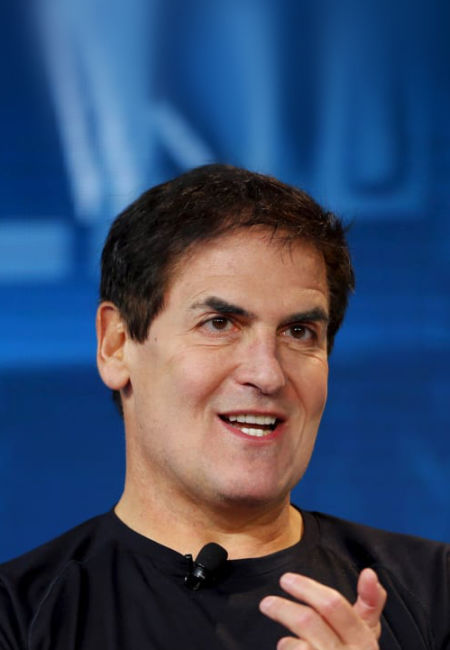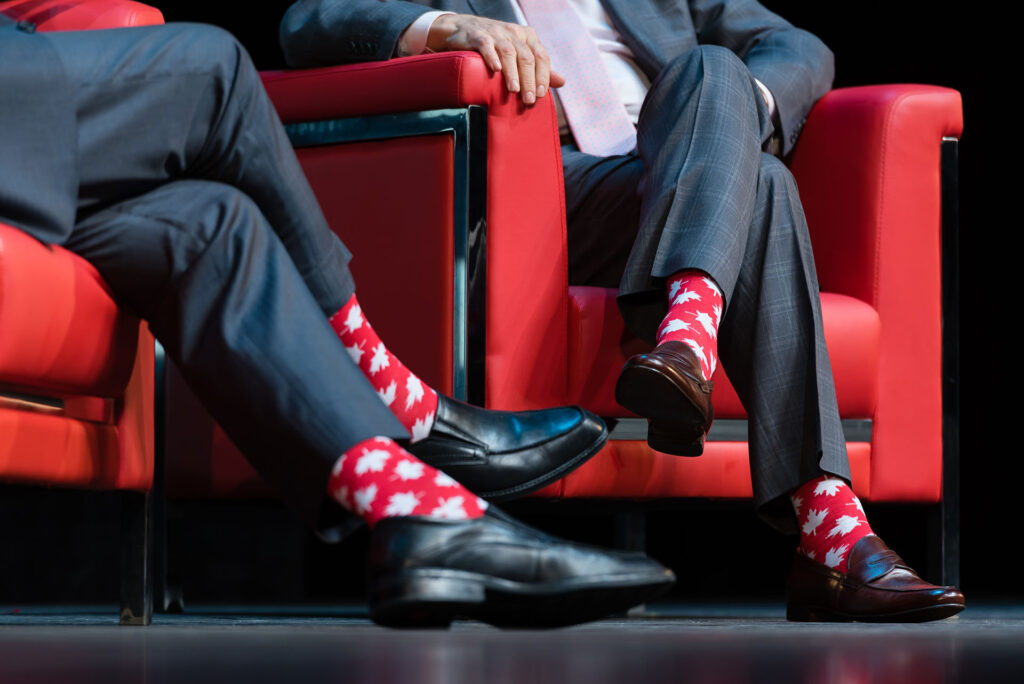By: Stephanie Porfiris, May 14 2020
Mark Cuban, serial entrepreneur, “Shark” investor, and Dallas Mavericks owner, shows why your brand must show compassion to survive.
“It’s not personal. It’s strictly business.”
Who would have thought that only 50 years after it appeared in The Godfather that once timeless phrase would be entirely outdated.
We were joined by serial entrepreneur, “Shark” investor, and Dallas Mavericks owner, Mark Cuban, to offer his two cents on why compassion and empathy in the workplace are the future of business, especially in the wake of COVID-19.
When the NBA was canceled as a result of social distancing measures, Mark’s first response was to make sure all his hourly stadium workers would be paid as if every game were played. When news broke in 2014 that a large proportion of Walmart workers qualified for food stamps, he took the opportunity to review pay structures across his companies ensure that every single person was being paid a living wage.
Why? Part of the reason is that Mark wants to see his core values and beliefs reflected in his work. He believes that people deserve to be safe and secure in their jobs. That means companies have a responsibility to take care of their people.
But also – it just makes good business sense.
Increasingly, consumers care more. They care about how a product is packaged; whether it’s fair trade; whether it’s hand made. An expanding list of socially-conscious angles that would never have been discussed 50, 25 or even 10 years ago.
The trend of consumers preferring ethical brands isn’t new, but it has rapidly accelerated as a result of COVID-19. Companies are facing a rising tide of consumer expectations, paired closely with job insecurity and its effect on spending.
Here are Marks’ top 6 reasons that your business absolutely must embrace compassion or risk being swallowed whole by the COVID crisis.
Reason #1: Consumers won’t buy products that don’t align with their values
Consumers today are extremely socially aware and conscious, particularly Gen Zs and Millenials. From the rights of employees to fair trade, companies can’t afford to be seen as a brand that doesn’t stand up for what’s right.
That means the days of being able to cite the bottom line as the priority for business decisions are gone.
“If you’re a company that’s not treating employees or stakeholders well, then your consumers are not going to want to consume your products or services. And you’re going to find yourself in a really difficult position. For all companies, how you treat your employees during this pandemic will define your brand for decades.”
Here are a few numbers from a 2019 Certus survey and Edelman’s 2020 Trust Barometer report:
- 70% of consumers want to know that the brands they support are going to address environmental issues
- 87% of consumers believe that stakeholders, not shareholders, are most important to long-term company success
- 30% of consumers today will stop buying their preferred products if they lose trust in the brand
The writing’s on the wall: the old mantra of “stakeholders first” simply doesn’t cut it anymore.
Reason #2: Consumers are managing their personal brands
Before we give customers all the credit for consumer activism, we should consider another key element that’s at play. Social media means that consumer decisions are highly visible to extended peer groups and posting a purchase can highlight not only a sense of style or affluence but passion for a cause.
“We all have our brand that we put on social media. If you don’t have the same level of social responsibility as the person trying to buy from you, they won’t buy from you,” says Cuban.
Social media isn’t going away any time soon, so it stands to reason that this demand for compassion is also here to stay.
Reason #3: Consumers are spending less
COVID-19 has caused severe economic disruption on a global scale and extreme unease among consumers. And according to Mark, the challenge in the current economy isn’t liquidity, and it’s not borrowing power. It’s consumer demand.
“What we’re seeing is that people are buying things that they need for their home; but they’re buying them online and they’re not buying superfluous things. They’re really sticking to the standard items, and that’s what happens when people aren’t confident that they’ll keep their jobs.”
If we’re all spending less, chances are we’re even more likely to take a microscope to the companies we’re considering supporting. When we’re buying less, each purchase means a whole lot more.
So the challenge we face is coming up with ways to stimulate consumer demand in an environment where people are not confident that they’re going to keep their jobs, whether it’s due to a global health crisis or mass layoffs due to rising inflation.
Reason #4: Tech is at an inflection point
Mark is confident that tech is at a tipping point. That tipping point means that companies are going to be under tremendous pressure to come up with big innovations to:
- Meet the changing needs of their customers and
- Set themselves apart from the competition.
Reason #5: The idea that saves you won’t come from leadership
So, we know innovative companies are the one that are going to end up on top. According to Mark, the best things companies can do to inspire innovation is communicate with team members. “Everyone is going through the stress and anxiety of what’s going on, so you have to be proactive in talking to your employees, customers, and vendors.”
Opening a line of communication is beneficial to mental health, workplace culture, and retention, but Mark can think of another extremely valuable reason to uphold a candid culture in your company. By opening up a dialogue on your team, you’re making it a safe and inviting place for people of all levels to share their ideas; and those are the ideas you want.
The best people to source those innovative ideas from? The ones who are closest to your customer; and that’s typically the frontline employees. “They’re the ones asking customers ‘how are you doing?’ Where do you see things going?’ When you open that line of communication, all it takes is one good idea.” And it doesn’t matter where it comes from.
For more tips on keeping your team informed in a crisis, check out this talk by Guy Kawasaki.
Reason #6: A tidal wave of companies is coming, and compassion is a surfboard
The temperature just dropped and the animals are getting restless. A storm is coming. According to Mark, we’re about to see a massive acceleration in new companies. With technology, starting a business is as simple as having a laptop and an idea, and he expects that we’re about to see a lot of big ideas coming out of this crisis.
“In the history of business, there has never been a better time to start a business. Never a better time to start a company than right this minute,” says Mark.
Just like Air BnB and Uber were born out of the 2008 recession, he strongly believes that now is the perfect time to start a company. With the job loss and reduced hours caused by COVID-19 people have time, they have ideas and, most importantly, a lot of them have nothing to lose.
Millennials and GenZs will create increased competition, and we already know they favour socially conscious businesses, having a robust social strategy might just keep existing companies afloat. This influx of smaller, more agile, more resilient, newer companies, will accelerate the path to a more compassionate version of capitalism.
“Those companies that are compassionate will excel far beyond those who won’t. And that will lead us to accelerating us in a better direction.”
Mark is a business guy – he makes smart investments and sound decisions. He invests in companies that make sense, have a robust market strategy and, ultimately, create something people want. The picture of pragmatism. And yet, Mark has prioritized compassion and empathy throughout all of his business dealings.
Why? Because it’s good business is personal.


